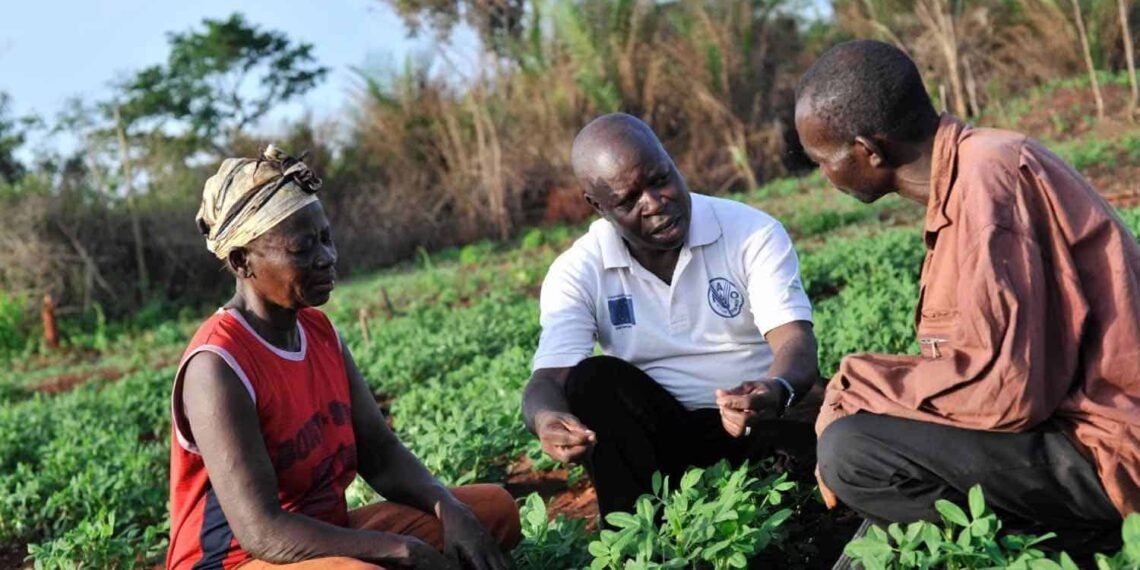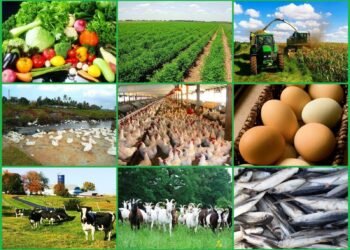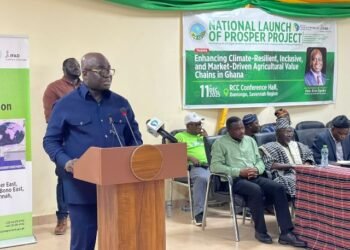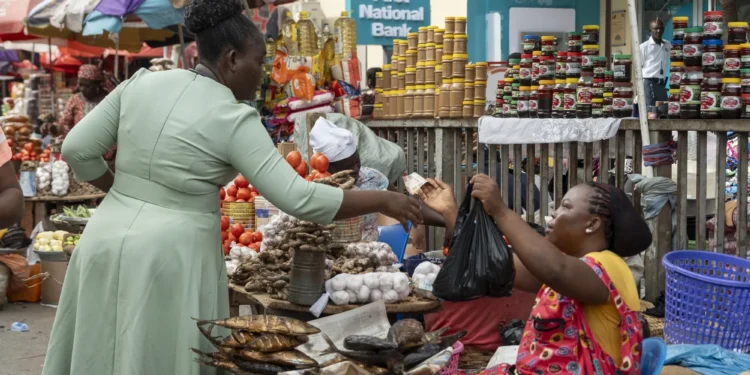Ghana’s peasant farmers are raising red flags over the country’s ballooning food import bill, warning that the situation could spiral further out of control if government fails to curb the destructive effects of illegal mining, widely known as galamsey.
With Ghana already spending over $3.5 billion annually on food imports, farmers say the figure could rise sharply as toxic metals infiltrate the nation’s farmlands, water bodies, and food supply.
Bismark Nortey, Executive Director of the Peasant Farmers Association of Ghana (PFAG), issued a stern warning.
“If the situation continues and farmers are forced to abandon production, the impact on our nation will be catastrophic. The current amount we spend on food imports, which we have already complained about, could escalate even more if nothing is done—especially as consumers become increasingly cautious about the safety of locally produced food.”
Bismark Nortey
Galamsey Contamination Exposed
The farmers’ concerns follow the release of a groundbreaking study titled “Mercury and Other Heavy Metals Impact Assessment” conducted from August 2024 to September 2025 by Pure Earth in collaboration with the Environmental Protection Agency (EPA). The year-long research examined soil, water, air, fish, and food crops across six regions — Ashanti, Eastern, Central, Western, Western North, and Savannah.
The findings paint a grim picture: widespread contamination from mercury, arsenic, and lead is threatening both food security and public health in mining communities and beyond.
One of the most shocking revelations came from Konongo Zongo in the Ashanti Region, where mercury levels in soil reached a staggering 1,342 parts per million (ppm), more than 130 times above the safe limit. In Wassa Kayianko, Western Region, airborne mercury levels peaked at 150 micrograms per cubic meter, 150 times above Ghana’s permissible threshold.
Such extreme contamination poses immediate and long-term risks to farmers, consumers, and the environment, potentially rendering entire stretches of farmland unsafe for cultivation.
Arsenic and Lead in Food and Water
The report also highlighted widespread arsenic contamination, with soil samples in Konongo Zongo recording 10,060 ppm — a shocking 4,000% above safe levels. Water samples in Konongo Odumase showed arsenic concentrations of 3.3 milligrams per liter, far exceeding global drinking water standards.
Lead contamination was equally alarming. Fish samples from Akwaboso in the Central Region and Konongo Zongo recorded lead levels surpassing World Health Organization (WHO) safety limits, with some reaching 2.8 mg/kg. Vegetables like pumpkin leaves in the Western North contained lead concentrations as high as 3.1 mg/kg.
This means staples such as kontomire, tomatoes, cereals, legumes, and tubers are now at risk, with potential long-term consequences for Ghana’s food chain.
Public Health in Jeopardy
Beyond the economic implications, the study warns of grave public health risks. Communities living near galamsey hotspots face chronic exposure to toxic metals through food, water, air, and even skin contact. The health effects are devastating, ranging from damage to the nervous system and kidneys to impaired child development.
Experts caution that if the government does not act swiftly, Ghana could see an increase in food-related health crises, compounding the financial strain already felt by households dependent on imported food.
The report proposes urgent multi-sectoral action, including the use of low-cost technologies like phytoremediation to clean up contaminated hotspots such as Konongo Zongo. Farmers are demanding that government ministries, agencies, and local authorities use the findings as a benchmark to strengthen enforcement against illegal mining and protect agricultural lands.
“Protecting farmers means protecting the nation’s future,” Nortey emphasized. “If galamsey continues unchecked, Ghana may soon face a food crisis that no amount of imports can fix.”
Ghana’s dependence on food imports already exerts enormous pressure on its foreign exchange reserves and weakens the local agricultural economy. Analysts fear that if galamsey continues contaminating farmlands, the government will be forced to spend even more on imports to feed the population. This would undermine national food sovereignty and leave the country vulnerable to global supply chain shocks.
READ ALSO: Ghana Ahead of Curve: BoG’s 650bps Rate Cut Outpaces Global Easing Cycle























